The Assassin’s Creed franchise has evolved and become fresher over time. As a result of its popularity, Ubisoft has connected the series to other franchises, like Watchdogs. Nevertheless, when it comes to choosing which games are better within the franchise, it’s a real struggle.
Assassin’s Creed has changed genres, the Assassin vs. Templar plot was side-lined, and the real-world story still struggles to feel less like a diversion. Luckily, that doesn’t mean the games released today aren’t enjoyable; they’re different. Many fans love where the series has gone, while some would rather it have stayed the same, but they are still fun to play through and add a lot more to the game with each installment.
Whether it is the complete packaged product, gameplay that hums, setting the new foundation for what’s to come, or the most memorable locales, these are the best Assassin’s Creed games are ranked by combining those principles.
Best Assassin’s Creed games, ranked
12) Assassin’s Creed Bloodlines (2009)
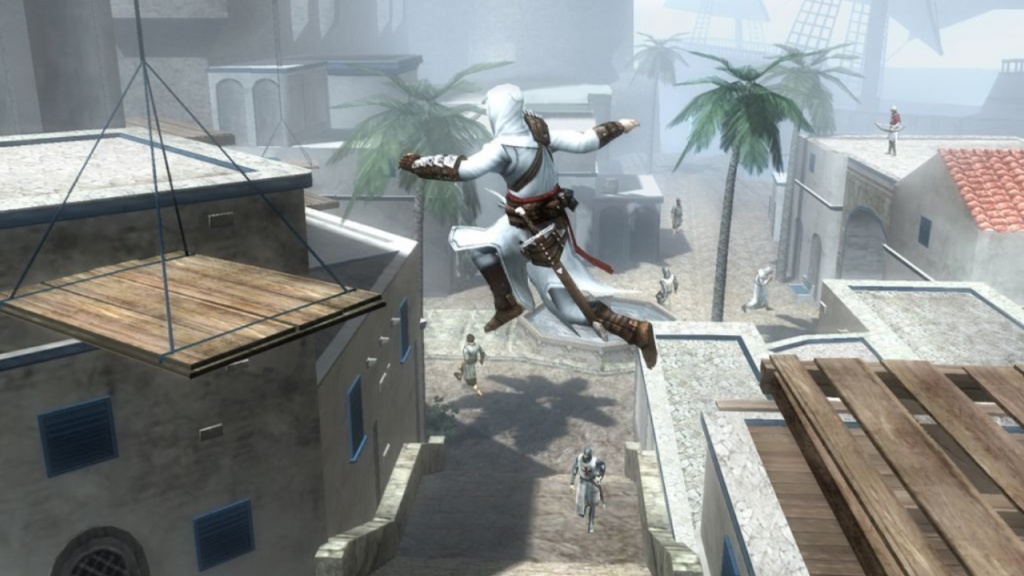
It wasn’t easy for Assassin’s Creed to transition from Altair to Ezio. In truth, nothing compares to Ezio, so regardless of what came before, it was a losing battle. Yet, leaning into the romance angle by finding a partner for Altair that would be recognizable to fans was the route chosen and was reasonably successful. Altair already had a love interest from a previous mobile game, but Bloodlines brought Altair a new one with Maria Thorpe.
During Bloodlines, Maria becomes disillusioned with the Templar order losing her husband, Robert de Sable, the first game’s antagonist. Graphics and gameplay are dated today, but the game’s romance shines even when compared to others in the series.
11) Assassin’s Creed Rogue (2014)
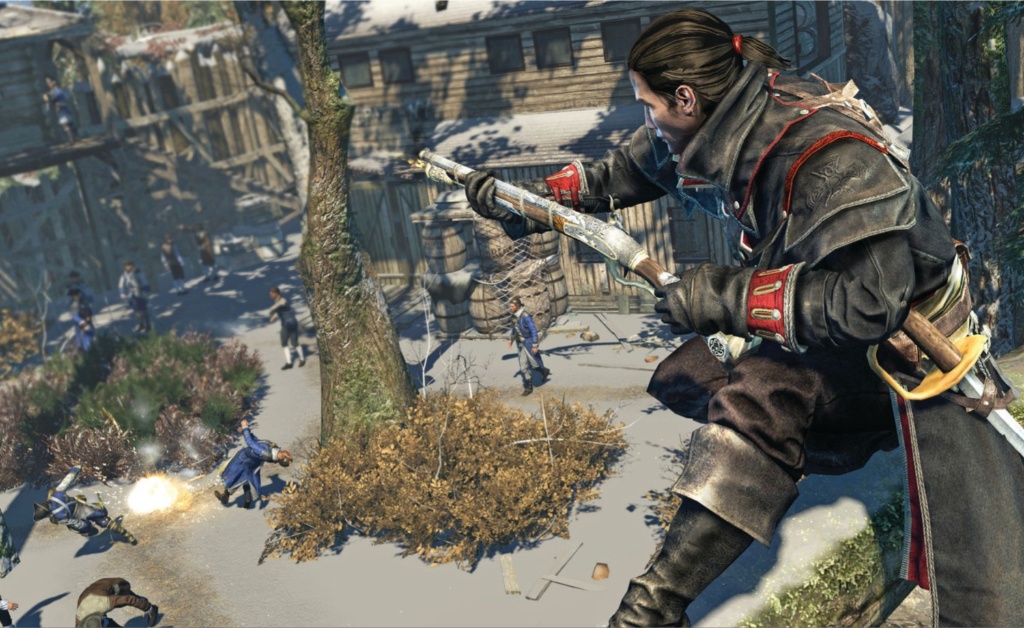
As players arrived at Assassin’s Creed Unity, it became clear that the Assassins had gone astray. They were so wrapped up in politics and the dealings of the world that they neglected the innocent. In Assassin’s Creed Rogue, players can take on the role of a rogue Assassin turned Templar, who, believe it or not, is better to the people than Assassins.
Assassin’s Creed Rogue is set before Assassin’s Creed III and was released at the same time as Assassin’s Creed Unity. Even though it was on last-gen consoles, it was far superior to Assassin’s Creed Unity. Throughout the game, you felt like a hero, and as you destroyed the Assassin’s guilds and killed the Assassins, the player’s moral justification wasn’t needed. Unfortunately, Rogue’s overall twist with the ol’ faithful plot of Assassin’s vs. Templars produced a fresh title that ultimately gets overshadowed due to its launch.
10) Assassin’s Creed (2007)
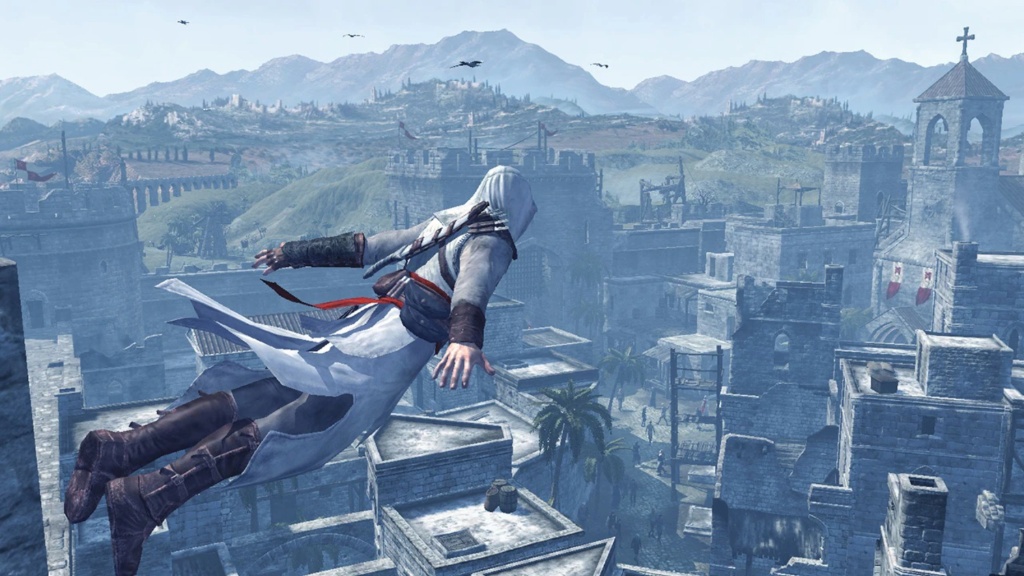
The original Assassin’s Creed was controversial. It was a technical feat as one of the first games to allow players to climb anything and use parkour, yet even though the story was great, the open world felt fake. There were no rewards for collecting collectibles or doing extra missions, and the people seemed aimless and just reacted to things rather than having a life of their own. In addition to the combat being stale, many players were turned off by the need for more content. Nonetheless, many games that come after owe a lot to what Assassin’s Creed brought to the table.
Considering that most of the characters were real and died around the same time as the game indicates, the story felt realistic. Many of the cities were accurately depicted and tested by historians. There were Assassins and Templars in the middle east, so let’s just say they didn’t play nice. Lastly, let’s remember the implementation of the Leap of Faith and clearing tower mechanics. That gameplay mechanic is still utilized and continues to be revolutionized today.
9) Assassin’s Creed III (2012)
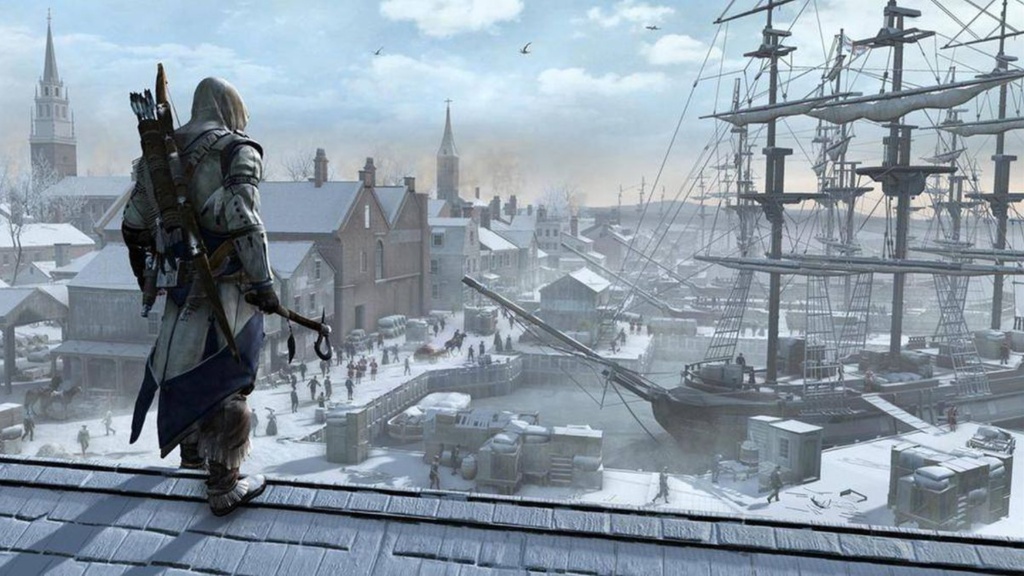
Assassin’s Creed III received so much hype, but there were disagreements about how the series should proceed. Creative director Patrice Desilets wanted Assassin’s Creed to be a trilogy, but the series proved good enough for a franchise. Instead of a satisfying ending, fans got a cliffhanger that would set up more sequels and never saw Desmond rise to his full potential.
On the Assassin’s side, fans meet Conner, a new assassin who discovers the order when it’s near death. Conner has a lot of potential, but he stays arrogant throughout the game, and it’s hard to relate to him when he mainly reacts instead of taking charge, unlike that of his father, Haytham, who quickly took center stage.
In addition, the game had many bugs, but it was still enjoyable. Although you no longer have a guild, many of the mechanics introduced in this game carried over into Black Flag and other titles that come after. Unfortunately, building a Homestead wasn’t a mechanic that continued despite love from fans.
8) Assassin’s Creed Revelations (2011)
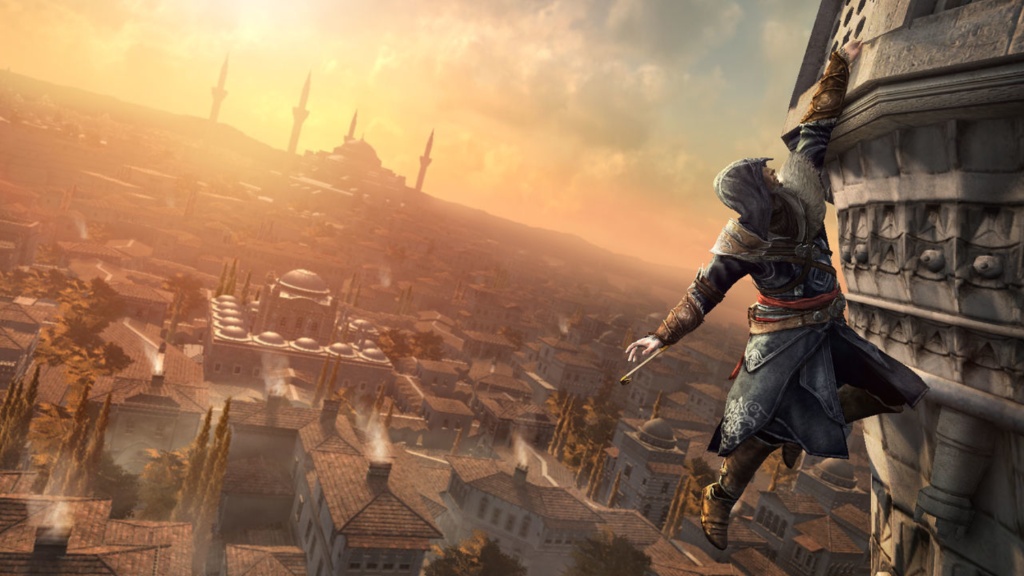
Ezio returned for one final installment. There are a lot of things players can do, but nothing is expanded upon to do more. The game gave Ezio a few new gadgets, a love interest, and, thankfully, the closure that Assassin’s Creed III couldn’t. Players watched the end of Altair’s story at the same time that they saw a lot of Ezio’s. It was a grand farewell to two beloved characters done far better than it gets credit for.
In addition, the player could do much more with their Assassins in the game. In the end, players could use the guild at its peak; the Assassin’s guild would never be more potent than when Ezio was in charge, and it shows. No other Assassin’s Creed game has made the guild feel as strong as this one which is unfortunate due to the heights of the franchise revolving around that very mechanic and narrative.
7) Assassin’s Creed Syndicate (2015)
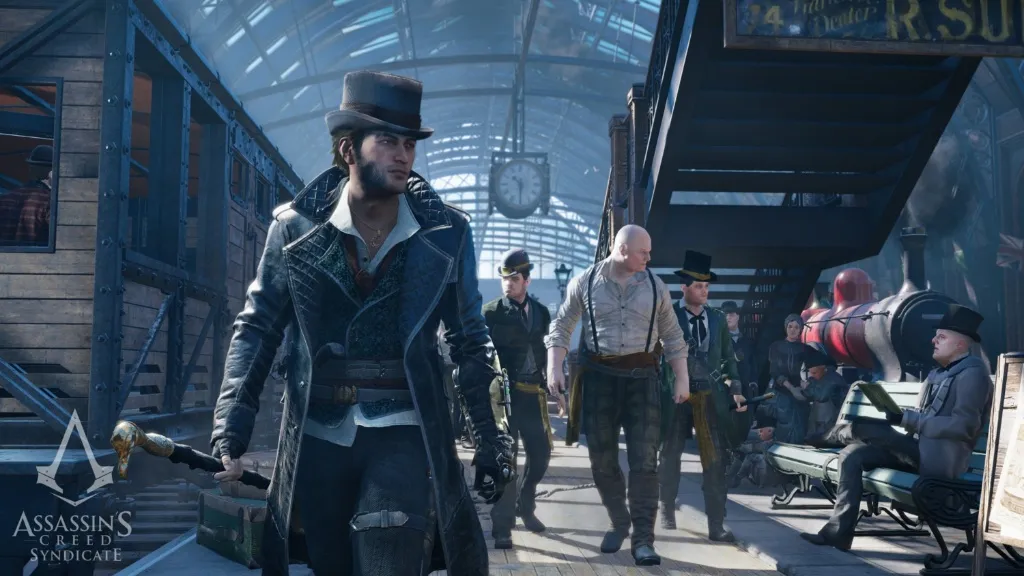
Due to the controversial release of Assassin’s Creed Unity, Assassin’s Creed Syndicate was mostly ignored. The cracks started to show with Assassin’s Creed Unity, as it was released with many bugs and failed to captivate players like the previous games. Although Assassin’s Creed Syndicate was a better follow-up to Assassin’s Creed IV: Black Flag, the damage was already done before Assassin’s Creed Syndicate’s release.
Players take on the role of the Frye twins as they reestablish the Assassin’s hold on London, all while trying to discover what came of their father and why. Regarding characters or a relationship between two, the Frye twins were a nice improvement and change of pace.
In Assassin’s Creed Syndicate, the combat system was significantly improved, grappling hooks were introduced so players could move around the city, and gangs played almost as important a role as they did in Assassin’s Creed Brotherhood. Despite delivering so much of what fans wanted with a compelling story, it was left behind when Ubisoft changed genres.
6) Assassin’s Creed Valhalla (2020)
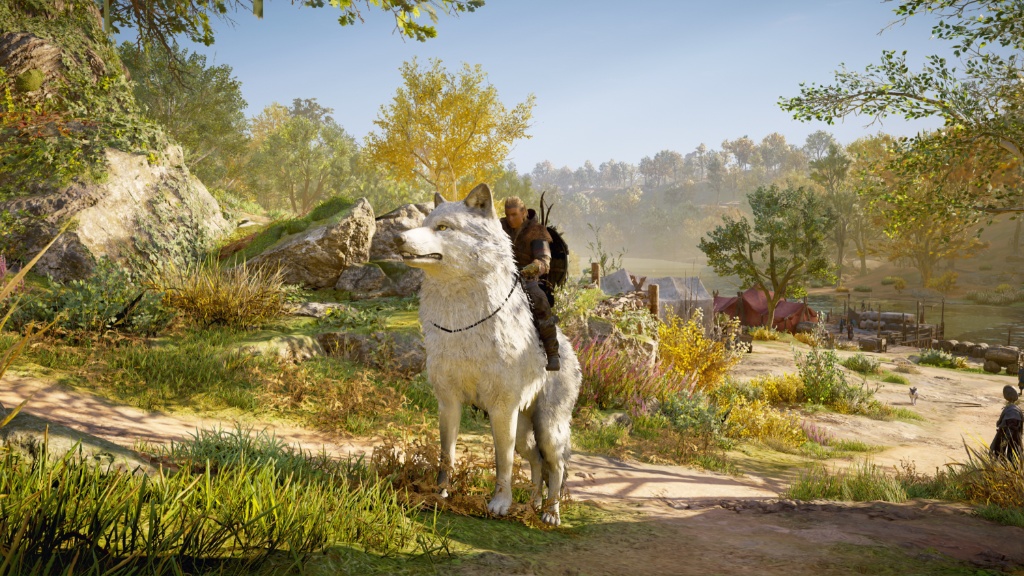
Valhalla is the third title in the more recent releases of more RPG-like Assassin’s Creed games. While Origins and Odyssey received their flowers, Valhalla didn’t share the same praise for most players. Ubisoft continues to make games based on the Assassin’s Creed universe but only lightly touches on the fight between Assassins and Templars. In Valhalla, your role is that of a Viking, which has been requested since the second Assassin’s Creed came out, and you set out to do your Viking duty of pillaging, killing, and stealing.
Assassin’s Creed Valhalla is fun, but it strays so far from the core of the series that it doesn’t feel like an Assassin’s Creed game. The story isn’t nearly as interesting as others in the franchise. Even though Valhalla is jam packed full of content, it’s not much better than many other Assassin’s Creed games beyond the fresh setting and technical prowess current-gen consoles provide.
5) Assassin’s Creed Origins (2017)
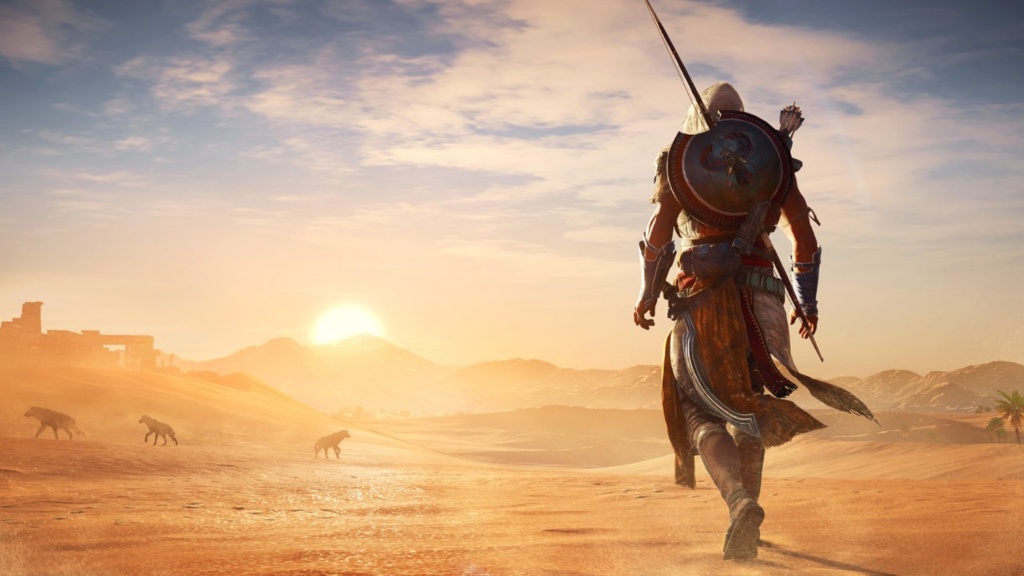
Finally, yearly installments of Assassin’s Creed games halted and Ubisoft began taking feedback and improving it from there. Finally, Ubisoft showed fans where it all began. Origins reinvigorated the franchise and arguably saved it.
This game’s main character, Bayek, is one of the all-time greats in the Assassin’s Creed franchise, and he embodies everything we want in a protagonist. He’s a protector of the people, a defender of justice, and a blade in the crowd.
Assasins’ Creed Origins is a revenge story that makes you want to kill all members of the Order of the Ancients, which are the ancestors of the Templars. The game also features some historical figures, and Bayek’s wife is one of the Assassins shown in Altair’s master assassin armor room. You started the assassin’s guild called Hidden Ones at the end of the game and the DLC. We didn’t learn more about Bayek, but we’d love to see him return and get a proper ending.
4) Assassin’s Creed Odyssey (2018)
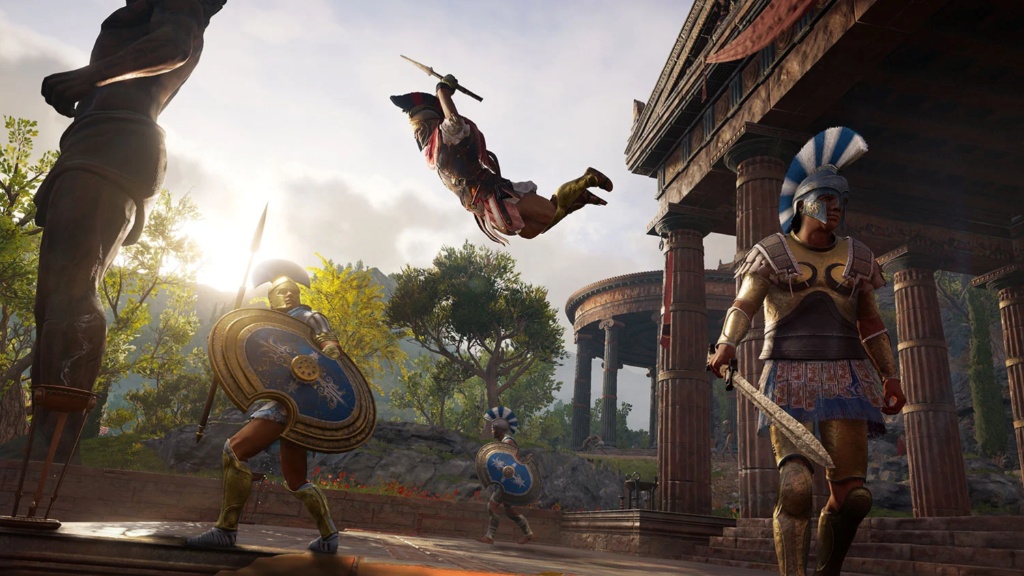
Ubisoft took a few pages out of The Witcher’s book and threw Assassins vs. Templars right out the window with Odyssey. You play as Leonidas of Sparta’s grandchild and embark on a quest so far into fantasy that Assassin’s Creed Odyssey cannot be considered historically accurate other than in its locations.
There’s a lot of fun to be had, and the abilities you earn are advantageous. Over time, you become as mighty as a demigod yourself. Without spoiling anything about the story, you choose between Kassandra or Alexios and find out the truth about their family history.
It was still a lot of fun and made you feel unstoppable. There was a perfect balance between Assassin’s Creed and the new identity that Ubisoft was developing. The God battles and Atlantis may seem ridiculous and strange at first, but they’re a lot of fun to play and serve more as a reward for your hard work in the main story.
3) Assassin’s Creed IV: Black Flag (2013)
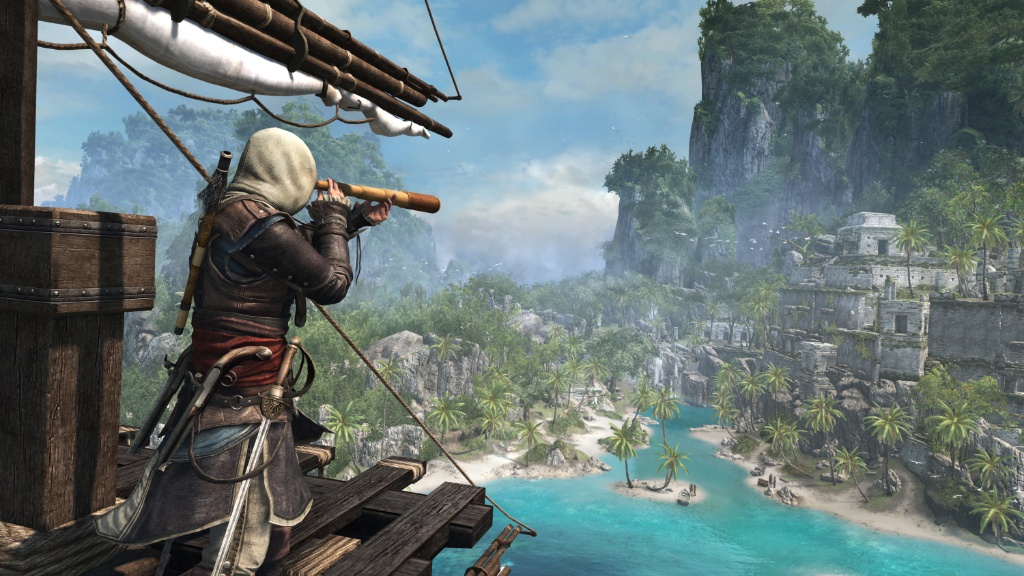
Ubisoft decided not to worry so much about Assassins and Templar in Assassin’s Creed IV: Black Flag, instead focusing on Edward Kenway’s story. You hear about the Assassins and Templars in the game, but they don’t play a significant role until the end. Until then, you’re just a pirate who wants to plunder, steal, and kill. While Edward isn’t a hero, he isn’t a villain either—your classic tale of an anti-hero protagonist.
Assassin’s Creed IV Black Flag allowed you to set up a vast pirate empire focusing on ship battling. Since the feedback for the ship battles was so positive, it has been in many games and even led to the development of Skull & Bones, a title we have yet to see in its full release. Black Flag is a fan-favorite for many players thanks to its take on exploration, sea shanties, pirate theme, and many more elements that make it feel like more than a typical Assassin’s Creed title.
2) Assassin’s Creed 2 (2009)
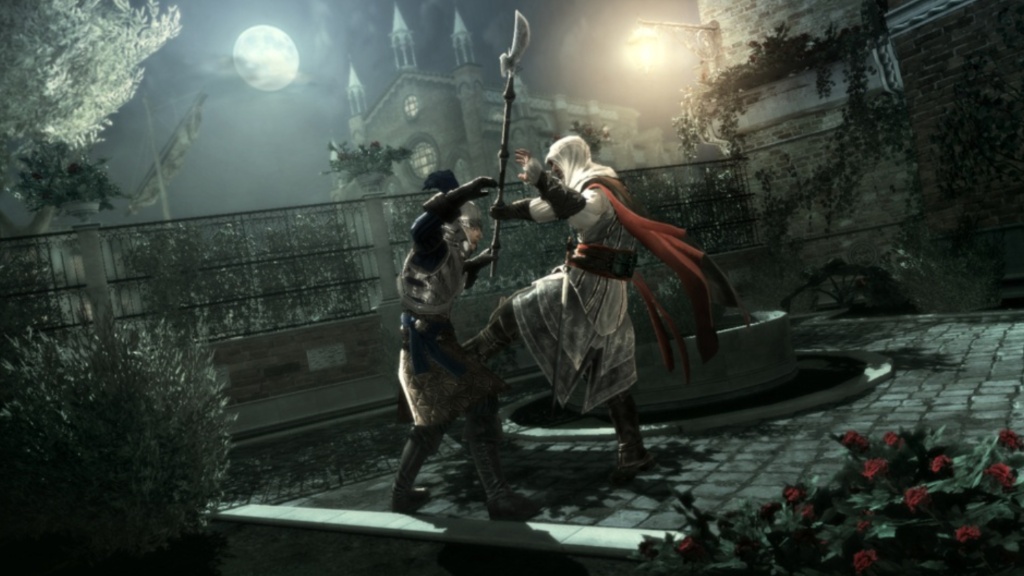
Assassin’s Creed 2 brought in a massive fanbase for Ubisoft after the promise its predecessor presented was revolutionized here in its sequel. The player would now control Ezio Auditore de Firenze, one of the best video game characters ever created, paired with one of the best video settings ever made; Renaissance Italy. Learning from the original Assassin’s Creed feedback, Ubisoft gave players a reason to interact with the open world. People and places felt real and alive.
The point is not to be thrust into the guild but to learn how much it helps others and then join it at the end. Assassin’s Creed 2 occurs during the Italian Renaissance, where great painters like Leonardo De Vinci and Michaelangelo often come to mind. Still, others may think of the Medici family and their banking empire. In Assassin’s Creed 2, players could make and invest in their city. You could earn enough currency to walk around throwing money away repeatedly and still make more than you threw away.
1) Assassin’s Creed Brotherhood (2010)
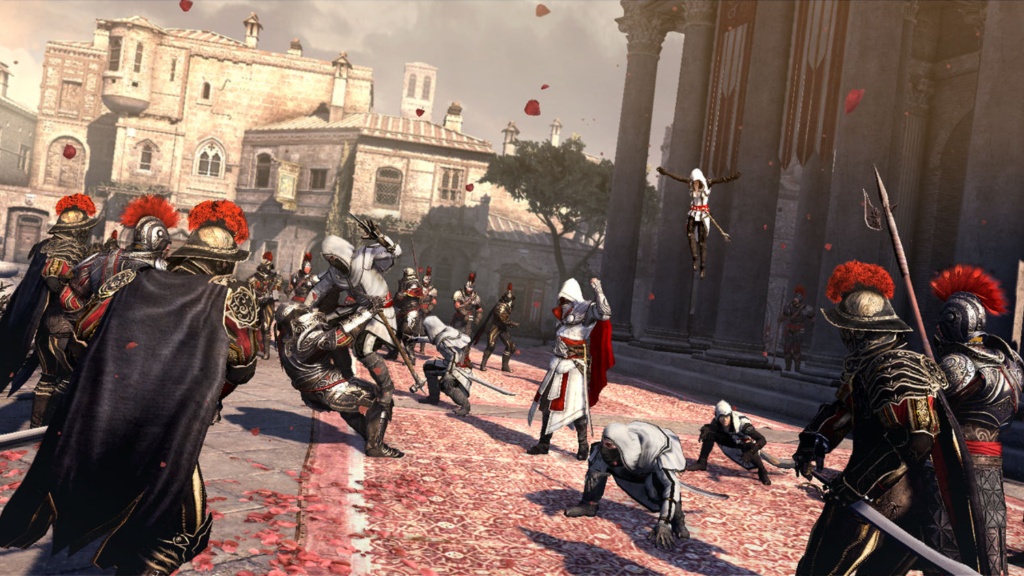
Assassin’s Creed Brotherhood was the result of Ubisoft’s best efforts and was the peak of Ezio, Ubisofts’ best character. During the game, players could take over Rome, build huge guild houses for their Assassins, train and develop their brotherhood, and make the guild extremely wealthy. You could use your Assassins whenever you wanted, and it felt like losing a friend when an assassin died.
Assassin’s Creed Brotherhood made Ezio the beloved character he is today and featured Cesare Borgia, one of the franchise’s best villains. The plot and story felt like they were from a movie, and the rivalry between these two war geniuses was unparalleled, not to mention the surprising cliffhanger ending that filled in many plot holes.
The gameplay alone would make this game number one, but ultimately, the side missions with Cristina stayed with players for years. Cristiana Vespucci appeared briefly in Assassin’s Creed 2, and many players wondered what happened to her. Assassin’s Creed Brotherhood explains the love between Ezio and her in side missions, and the ending will surely bring you to tears.


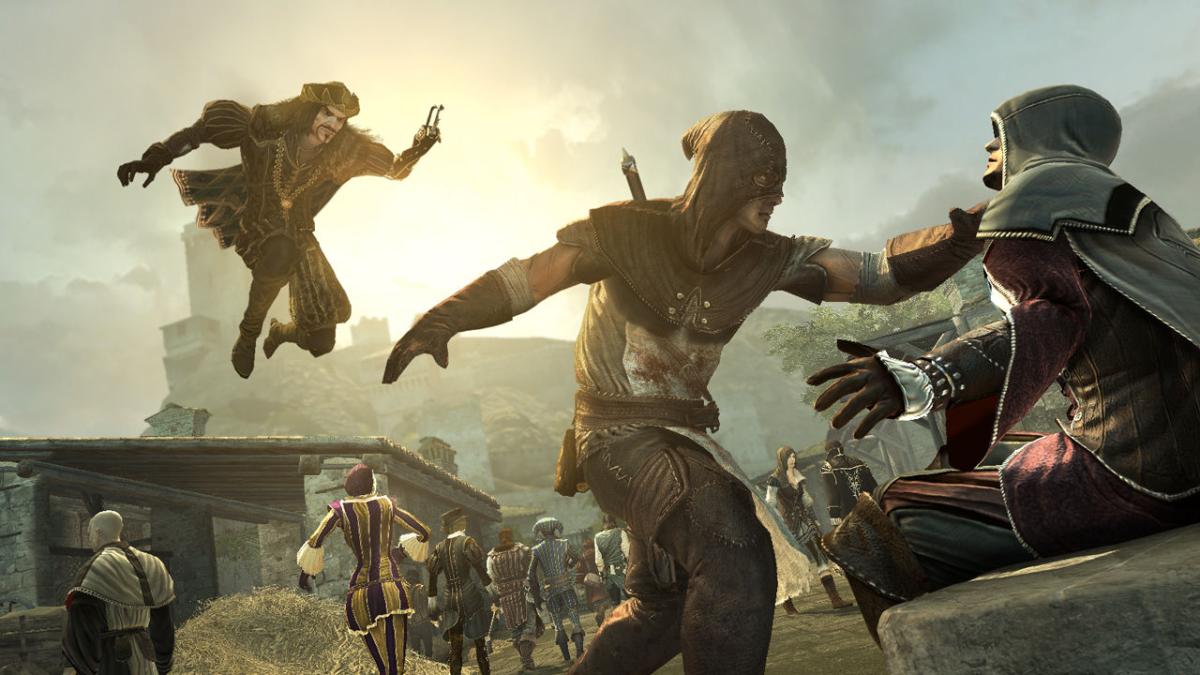

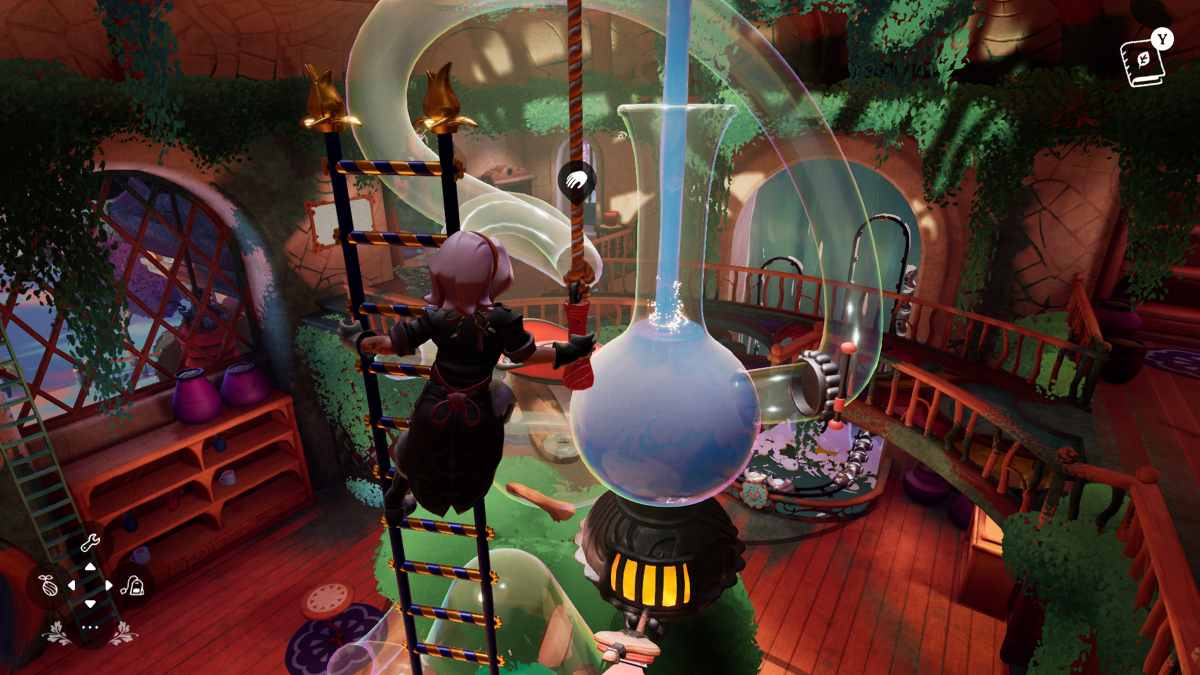

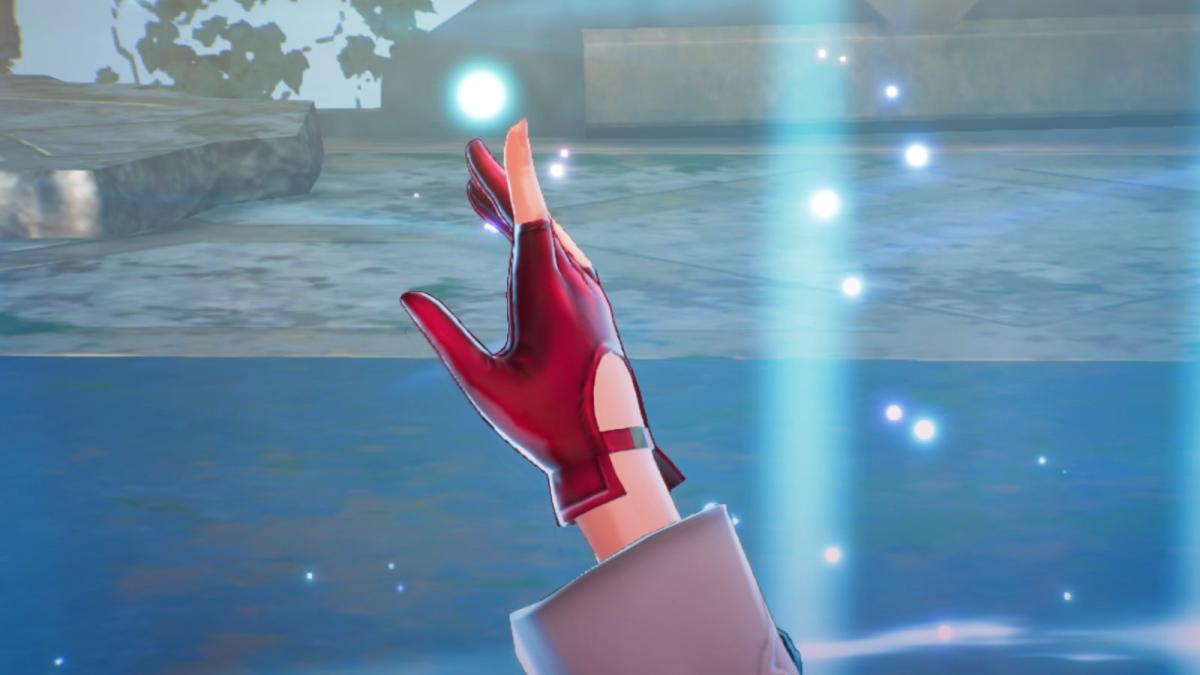
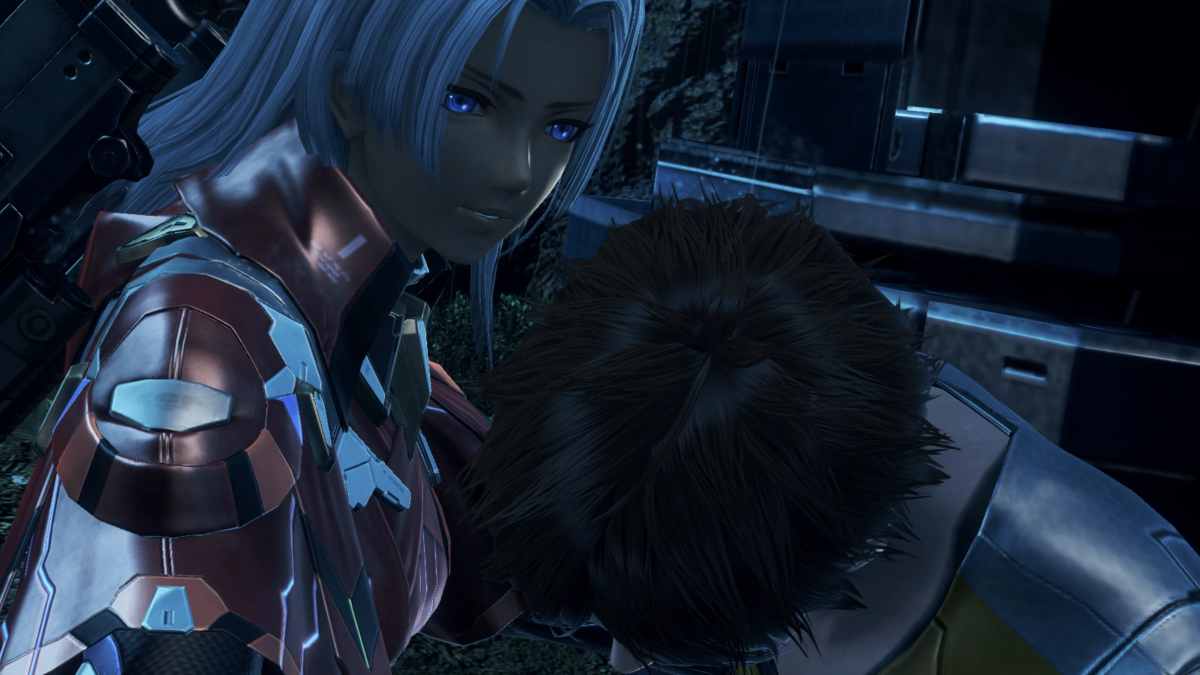
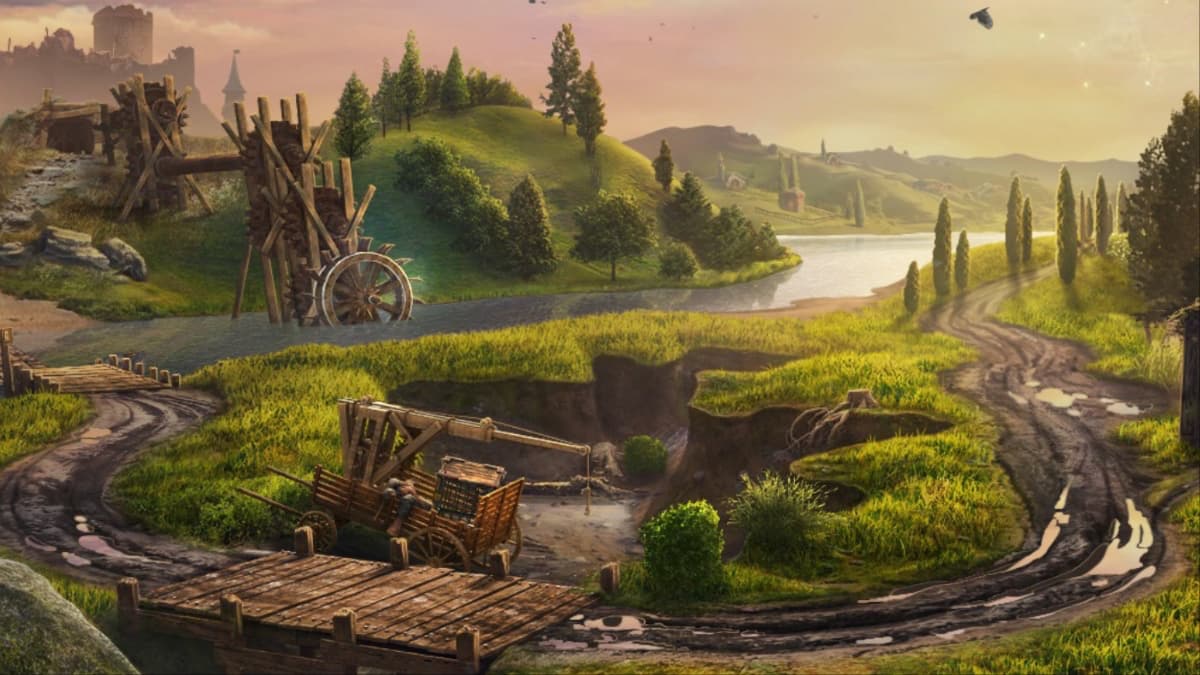
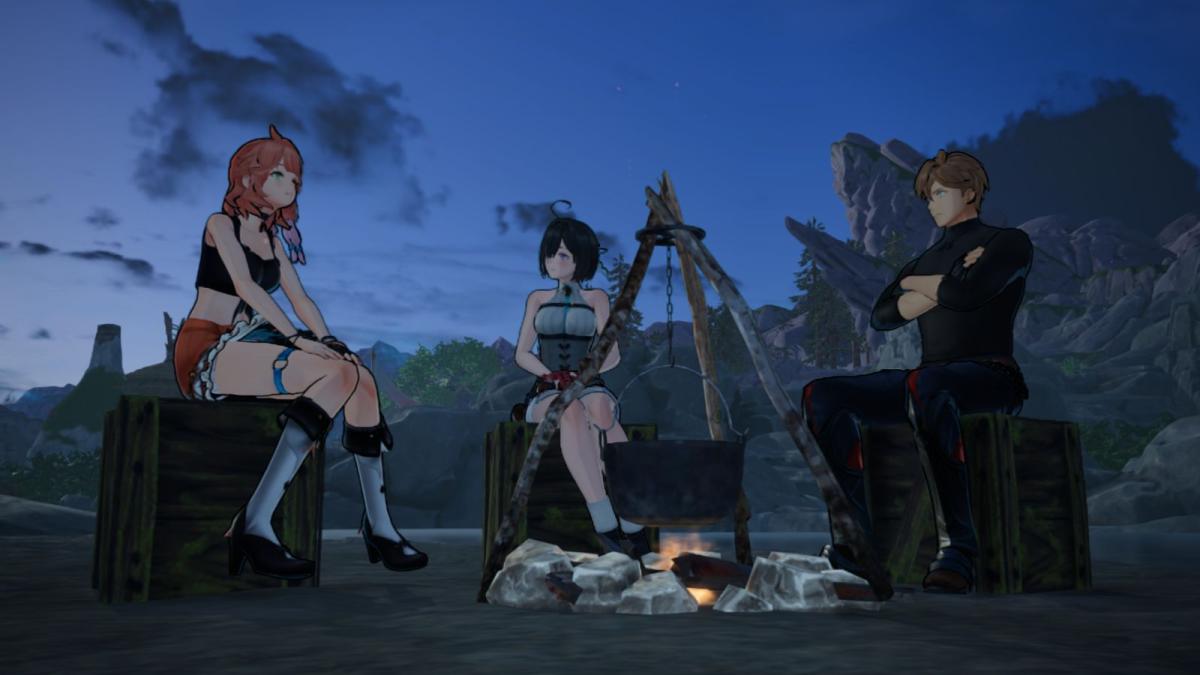
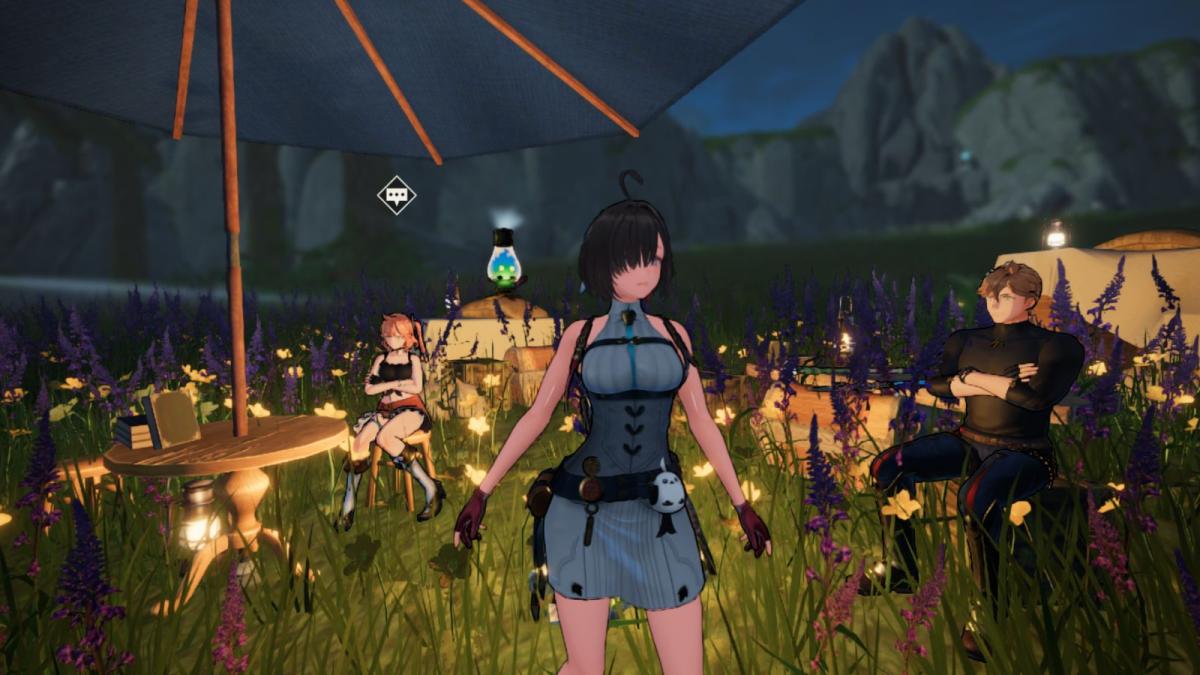



Published: Aug 8, 2023 12:39 pm